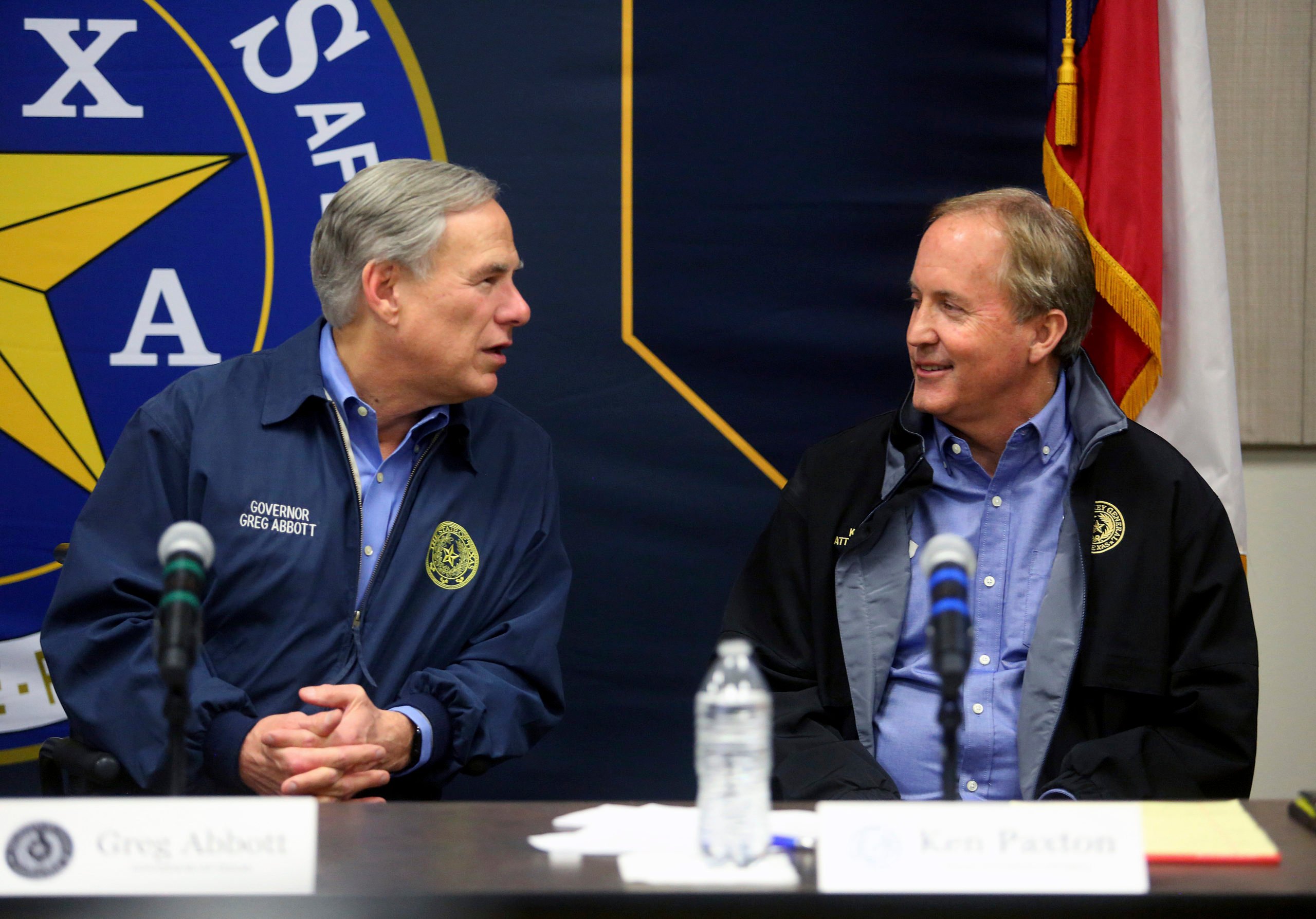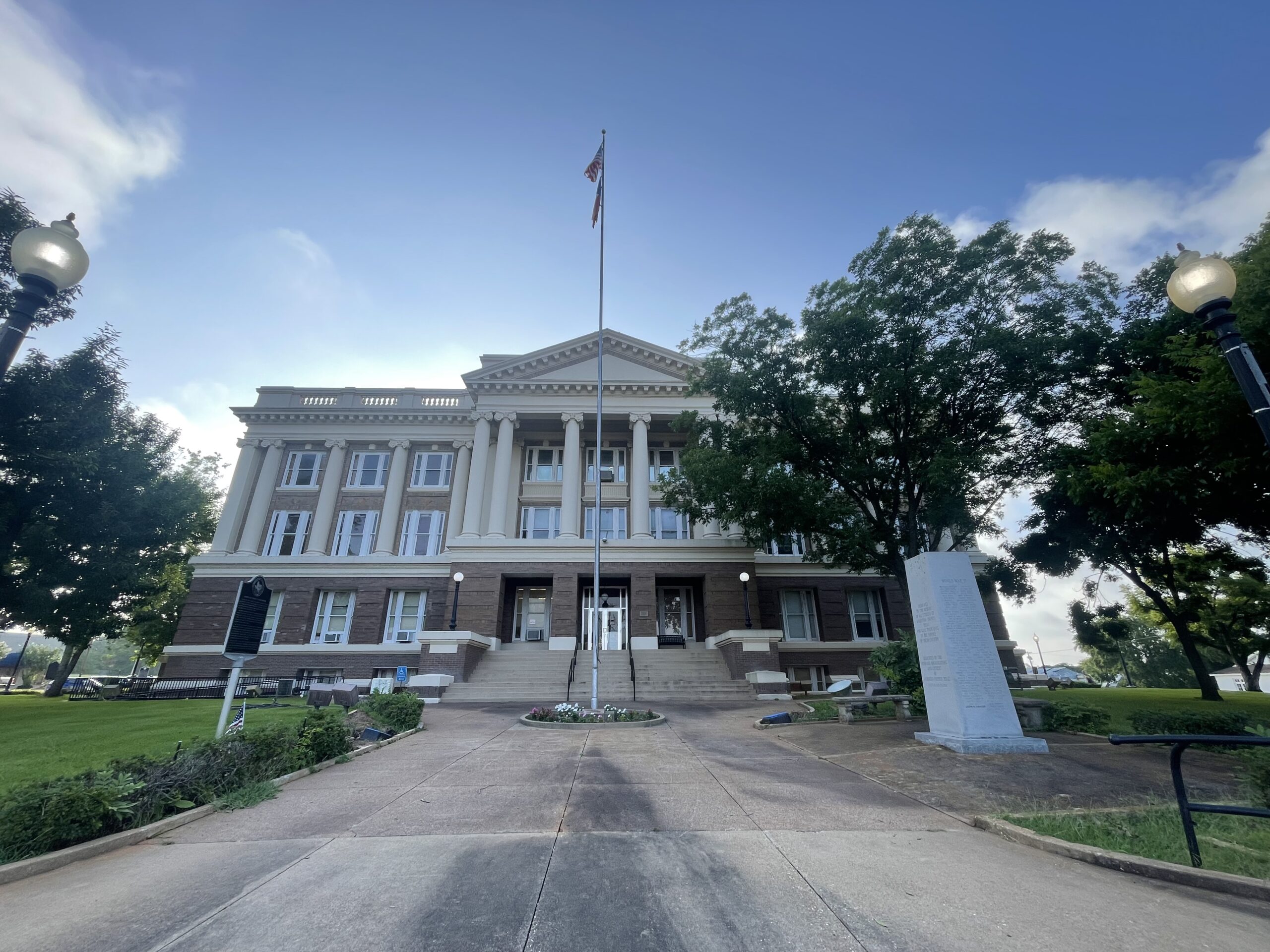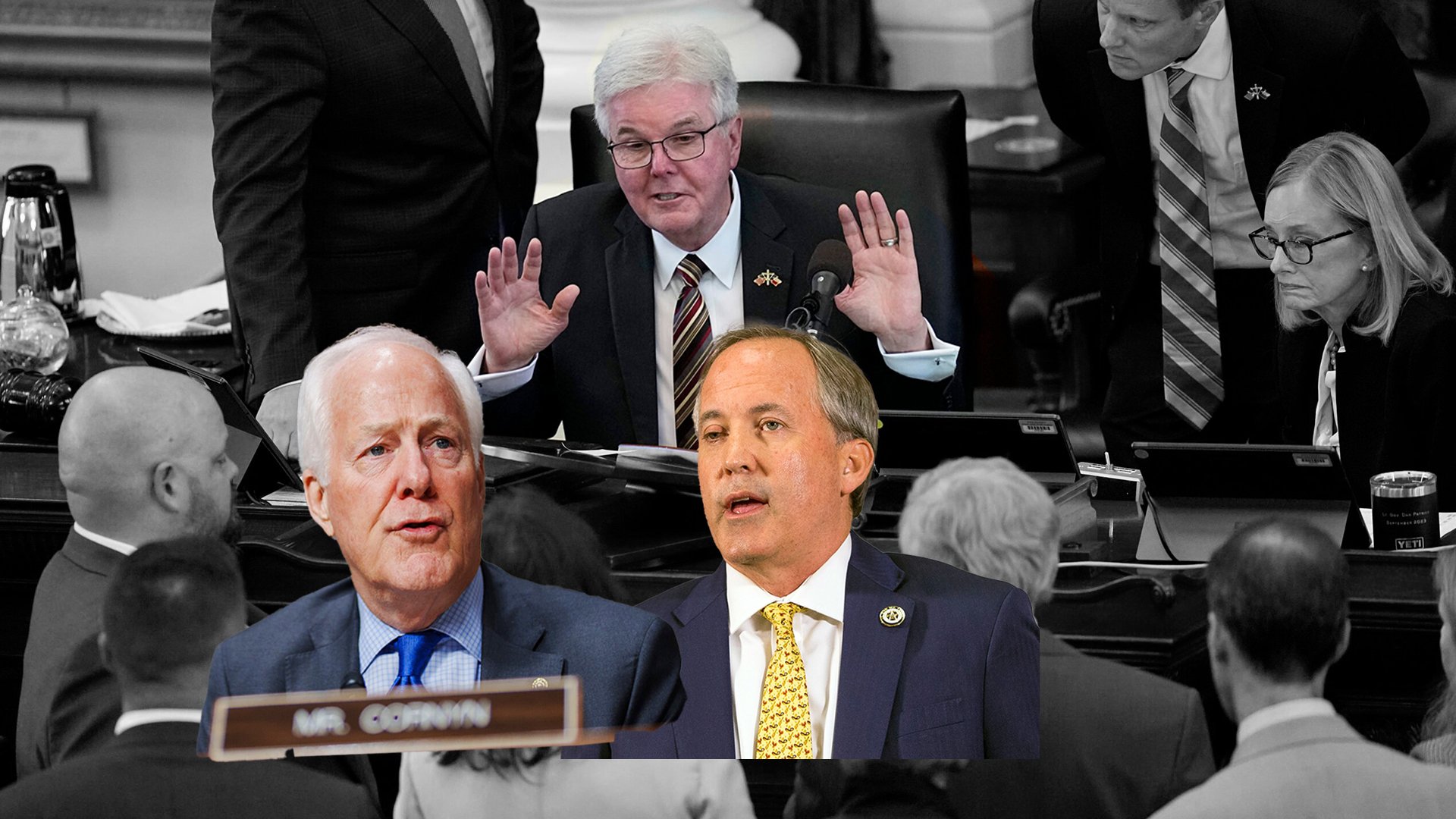
Indicted Attorney General Ken Paxton Epitomizes Texas’ Exceptionalism on Corruption
Our governor, lawmakers, and judges have distinguished themselves from their colleagues in other states by failing to take timely action against a rogue public official who refuses to step down.
Just before assaulting the U.S. Capitol on January 6, 2021, rioters attending the Trump rally near the White House heard these stirring words: “What we have in President Trump is a fighter. We will not quit fighting. We’re Texans, we’re Americans and the fight will go on.”
These are the words of Texas Attorney General Ken Paxton. Paxton remains proud of that speech, but has repeatedly refused to turn over records of his communications about that rally to reporters in a possible violation of the Texas Public Information Act. That dispute could result in Paxton being prosecuted for violating a key accountability law that his office is simultaneously charged with defending.
Indeed, Paxton has been accused of violating state laws so often that he seems to embody the dark side of what some call “Texas exceptionalism”. For the last seven years, he has been under indictment on three felony charges related to securities fraud. Usually invoked in braggart terms, “Texas exceptionalism” has exceptional downsides: We coddle—and re-elect—politicians who scorn and break our ethics rules and laws.
No other sitting state attorney general can compete with ours in the exceptional number of legal complaints and scandals that he has had in office. In a recent report, Governing Magazine found that state attorney general scandals most often affect inexperienced, first-term officials in states controlled by a single party. What sets Paxton apart is his inability to learn from mistakes, his long litany of alleged and admitted misdeeds, and our state’s failure to bring him to justice. Indeed, he is favored to win re-election in 2021, though he will face three formidable Republican opponents in March.
Paxton was a known rule breaker at the time of his first attorney general race in 2014. During that primary, then-state Senator Paxton admitted to state regulators that he had acted as an unregistered securities agent and paid a $1,000 civil fine. Paxton acknowledged that he’d recruited customers for an investment firm without mentioning that he would pocket a third of the fees. (He also failed to list this income in state financial disclosures, as required by Texas law. ) Since Paxton’s admissions constituted a felony, our nonprofit, Texans for Public Justice, filed a criminal complaint with the Travis County District Attorney. The tortured progress of the subsequent criminal case illustrates a pillar of Texas exceptionalism: It’s hard to hold public officials accountable here.
At seven years and counting, here’s what has happened with our complaint. After determining that Paxton’s alleged crime occurred on his home turf, in 2014 Travis County prosecutors referred it to Collin County District Attorney Greg Willis, a longtime Paxton friend and business partner. Paxton and Willis were part owners of a limited partnership that obtained a crucial zoning change to flip a $700,000 property for more than $1 million In 2004. Willis stalled his pal’s case for months before recusing himself. A state judge then appointed special prosecutors. Finally, in July 2015, a Collin County Grand Jury indicted Paxton on felony fraud charges related to pushing stock investments without revealing that he was paid to do so. But multiple delays have kept that case from trial: defense allegations of grand jury irregularities, Collin County’s refusal to pay special prosecutors, venue flips from Collin to Harris County and back again, Hurricane Harvey, and the global pandemic.
In 2016, Paxton ignited another scandal when he disclosed that his legal defense fund for that case had raised $329,000. His top donor, at $100,000, was James Webb, CEO of a medical imaging company that had a case pending before Paxton’s Medicaid Fraud Division. Weeks later, Paxton’s office signed off on a settlement; Webb’s Preferred Imaging paid $3.5 million without admitting wrongdoing, according to a Department of Justice press release.
A state bribery statute prohibits public officials from accepting “any benefit” from a person known to be “subject to regulation, inspection, or investigation by the public servant.” But a Texas Rangers investigation of Webb’s gift did not lead to an indictment. Paxton justified taking money from his friend Webb under another provision of that law that allows officials to accept gifts motivated by “a personal, professional or business relationship.” But any official truly concerned with maintaining public trust would not take money from a conflicted source the way Paxton did.
In 2019, FBI, U.S. Treasury, and Texas State Securities Board agents raided the home and offices of another Paxton supporter, Austin real estate mogul Nate Paul. No charges have been filed to date against Paul or his company: World Class Holdings. Paul sued the FBI in 2021, claiming that the raids were improper. As Paul pushed back against his investigators, Paxton repeatedly directed his office to help Paul, who contributed $25,000 to Paxton’s 2018 re-election campaign. A law firm representing Paul gave Paxton another $25,000 in 2020.
Paxton supported Paul’s open records requests seeking information about the raids. And he directed his staff to investigate Paul’s claim that law enforcement officers tampered with search warrants. When his staff failed to find evidence of wrongdoing, Paxton hired an outside attorney as a special prosecutor to keep pursuing the warrant-tampering claims. Paxton’s special prosecutor, Brandon Cammack, also issued subpoenas seeking records from World Class’s lenders, who pursued foreclosures on $258 million worth of its properties in Austin alone, according to the Austin American-Statesman.
Paxton took more action to help Paul confront his creditors. On August 2, 2020 —two days before a scheduled foreclosure auction of World Class properties—Paxton took the unusual step of issuing a nonbinding legal opinion on a Sunday. It argued that foreclosure sales should not occur wherever a state gubernatorial Covid order, then in effect, barred more than 10 people from gathering outdoors.
Paul appears to have helped Paxton, too. While married to state Senator Angela Paxton, the attorney general told his senior staff in 2018 that he was ending an extramarital affair with a woman who was an aide to another state senator. Paul later hired that same woman as a project manager despite her lack of experience in that role. He acknowledged that Paxton recommended her, but said he didn’t make the hire as a favor to Paxton.
In a stunning development in the fall of 2020, eight top Paxton aides formally complained to the FBI that their boss had illegally abused his office through “intense and bizarre” efforts to assist Paul. This time, his own employees, including his first assistant attorney general, several top deputies, and his law enforcement director accused Paxton of wrongdoing. Denouncing the whistleblowers as “rogue,” “disgruntled” employees, Paxton’s office fired five of them, while three others resigned. Most of those employees joined a lawsuit that alleges that they were dismissed for blowing the whistle. It also alleges that Paul remodeled Paxton’s Austin home in 2020. The FBI is still investigating their allegations; no related charges have been filed.
Paxton is hardly the only attorney general to confront a serious scandal. What distinguishes him is that he has stayed in office, triggering one scandal after another without facing consequences. Meanwhile, troubled peers in other states have confronted—or heeded—calls for resignations, been subjected to legislative investigations, or been convicted and imprisoned.
Utah’s Republican Attorney General John Swallow resigned in 2013 during a GOP-controlled state House investigation, which concluded that Swallow’s campaign “hung a veritable ‘for sale’ sign on his office by secretly raising hundreds of thousands of dollars from predatory lenders to attack his opponents.”
The Philadelphia Inquirer reported in 2014 that Pennsylvania Attorney General Kathleen Kane, a Democrat, quietly dropped a case against Democratic officials who were recorded taking bribes. In response to the story, Kane illegally leaked secret memos from a grand jury investigation to try to discredit the attorney whom she blamed for the leak. After ignoring Democratic Governor Tom Wolf’s calls for her resignation, Kane was convicted in 2016 of perjury, official oppression, obstruction, and conspiracy charges. She served eight months in prison.
Sex-related scandals precipitated the resignations of New York Democratic Attorney General Eric Schneiderman in 2018 and Alaska Republican Attorney General Kevin Clarkson in 2020.
In a pending case, South Dakota Republican Attorney General Jason Ravnsborg smashed his car one night in 2020 after he had been flipping through news sites on his phone while driving. Ravnsborg said he thought he hit a deer. Returning to the crash site the next day, he discovered the corpse of 55-year-old pedestrian Joseph Boever. Ravnsborg got a $1,000 fine in 2021 after pleading no contest to an illegal lane change and to using his phone while driving. Nonetheless, Republican Governor Kristi Noem called for his resignation and the GOP-controlled House is investigating possible impeachment. Criminal investigators told the House panel this January that the victim’s glasses wound up inside Ravnsborg’s car, suggesting that his face penetrated the windshield. In their opinion, they said, it’s hard to believe that the attorney general did not see the victim next to his car—or on its windshield.
Our governor, lawmakers and judges have distinguished themselves from their colleagues in other states by failing to take timely action against a rogue attorney general who refuses to step down. Texas officials—and voters—bear responsibility for creating and tolerating a system that has let Paxton remain in office under so many shadows for so long. In this failed system, voters may offer the best hope.
Paxton won re-election in 2018 with just 50.6 percent of the vote. He had the worst showing of any of the Republicans who swept every statewide office again that year. Weakened by fresh scandals this round, Paxton will confront three formidable Republican challengers March 1. In recent year-end campaign disclosures, none of them approached Paxton’s $7.5 million war chest. But Paxton has been forced to spend heavily to counter his own poor reputation, records show.
His strongest challenger in both cash and name recognition is Land Commissioner George P. Bush, who sits on $3.2 million in campaign funds. Former Texas Supreme Court Justice Eva Guzman, who has won two statewide judicial elections, reported $2 million in the bank. Finally, ultra-conservative Rep. Louie Gohmert, first elected to an East Texas Congressional seat in 2004, banked $900,000. Five Democrats also are running.
Even if one of these challengers finally pushes Paxton out of office, he will leave intact Texas’ truly exceptional system of coddling public corruption. Societies that indulge abusive officials never lack for the corruption that they so actively breed.
Correction August 30, 2022: A previous version of this story stated that Kathleen Kane served 8 years in prison. It was actually 8 months. We regret the error.



